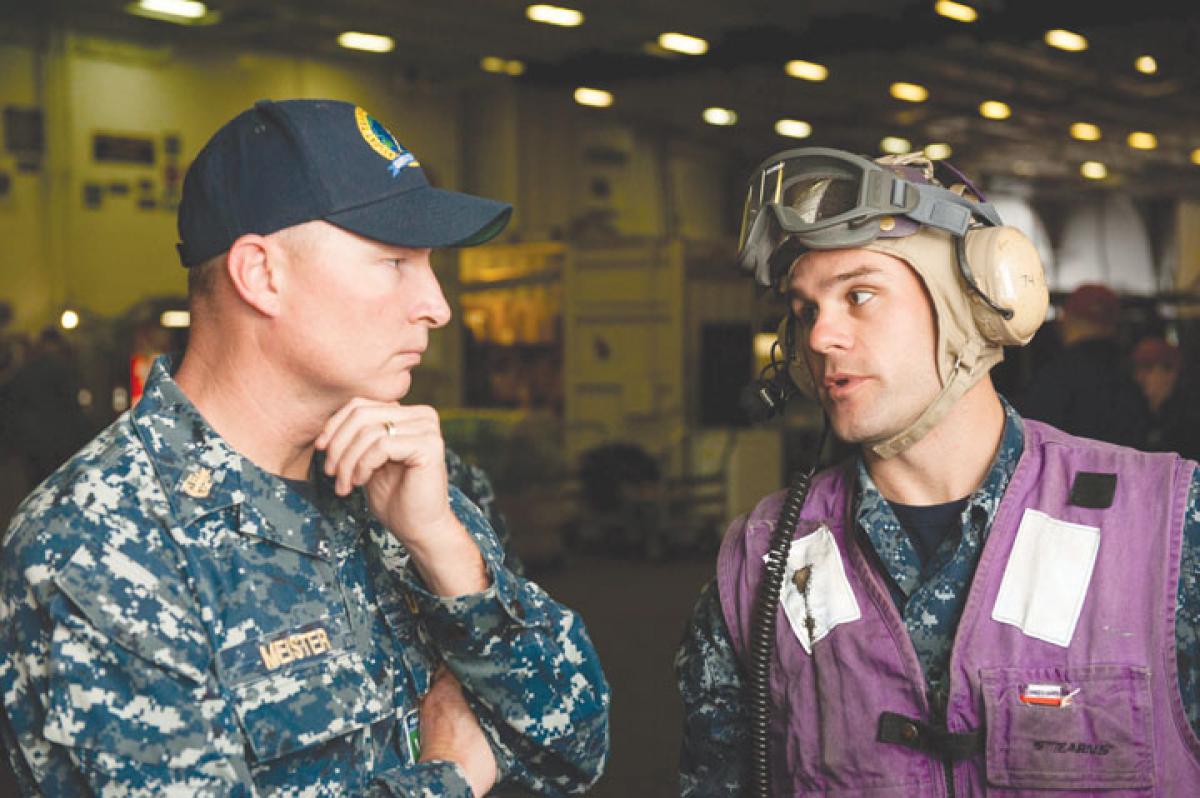The misguided and stubborn come in every age group, yet the Army’s internal investigation of Private First Class Bradley Manning’s mass disclosure to Wikileaks partly attributes his duplicity to our “old” friend “millennialism.” Part III of the investigation states:
Millennials often develop loyalties in the virtual world that often clash with more traditional values and loyalties in the physical world. . . . A young soldier who is . . . most familiar with the virtual world of the internet . . . may be unable to adapt to the military’s focus on teamwork and operational and informational security.1
Manning likely approves of the pedestal the Army report has put him on, having said before he was caught to a Wired reporter: “God knows what happens now. Hopefully worldwide discussion, debates, and reforms. If not . . . then we’re doomed as a species.”2
PFC Manning disguises his conscious and selfish betrayal in a garish costume of generational purpose. Meanwhile, the report represents an older age group’s lack of mindfulness by grafting onto millennials a combination of fringe and invented culture meant to explain failures in screening and leadership that should have either fixed or ejected an outlier such as Manning.
The young-versus-old theme of the millennial debate presents a false choice. The reality is not a contrast between age groups, but rather a shouting match among those of every age who, to a degree, refuse to listen or learn. All generations start with some of the young being blind and self-absorbed, just as they end with some elders condemning the entire upcoming generation for a few outliers. In 1842, 18-year-old Midshipman Philip Spencer was hanged at sea for his plotted mutiny on board the USS Somers. He was hardly a representative of his generation, which included such men as Admirals David Dixon Porter of Civil War fame and John Worden, founding president of the U.S. Naval Institute.
Fifty-one years later, Admiral F. M. Ramsey demonstrated the opposite tendency of Worden, fretting that subordinates were presuming too much when he wrote in Alfred T. Mahan’s 1893 fitness report, “It is not the business of naval officers to write books,” even though Mahan was his junior by only five years.3
So while Billy Joel’s “Angry Young Man” and his equally stubborn older equivalents debate one anothers’ merits, Naval Institute members can consider ourselves the real opposing camp of this discussion: those too busy learning and getting things done to invent generational problems. In the Navy, we are the young deckplate innovators learning about 3-D printing and the old salts like Captain Jon Rodgers encouraging his sailors to kick out bulkheads and implement new ideas to turn the almost-decommissioned USS Ponce (LPD-15) into the Navy’s new afloat forward staging base AFSB-15.4 Today’s 19-year-olds were first-graders on 9/11 and have just arrived in Iraq for the assistance mission against the Islamic State of Iraq and Syria. Some of them will be tomorrow’s Master Chief Kirby D. Horrell, retiring after a 47-career as the Navy’s last Vietnam-era SEAL.5
In considering the many challenges of leadership, we would do well to ignore blanket generalities about generation. We should respect both those we used to be and those who are where we will one day be, especially in the military. The whole generational debate was well summed up by G. K. Chesterton in the 3 June 1922 Illustrated London News:
I believe what really happens in history is this: the old man is always wrong, and the young people are always wrong about what is wrong with him. The practical form it takes is this: that, while the old man may stand by some stupid custom, the young man always attacks it with some theory that turns out to be equally stupid.6
The debate about which generation is more suited to military service does not originate from an actual gap between age groups. It stems from a timeless attitude problem of those who loudly and without listening invade the space of those trying to get work done.
1. Department of the Army memo, “Compromise of Classified Information to Wikileaks,” 14 February 2011, 71-72, AR 15-6, http://media.washtimes.com/media/misc/2014/10/02/army-regulation-15-6-investigation_wikileaks-ar-15-6-roi-redacted.pdf. \
2. Kevin Poulson and Kim Zetter, “‘I Can’t Believe What I’m Confessing to You’: The Wikileaks Chats,” Wired.com, Conde Nast Digital, 8 June 2010.
3. Benjamin Armstrong, ed., Twenty-First Century Mahan: Sound Military Conclusions for the Modern Era (Annapolis, Md.: U.S. Naval Institute Press, 2103).
4. Jon Rodgers, “Re: Sea Control 23: USS Ponce,” NEXTWAR Blog podcast, Center for International Maritime Security, 24 February 2014.
5. Brandon Raile, “Last Vietnam-Era SEAL Retires,” Navy.mil, 15 August 2014.
6. “Quotations of G. K. Chesterton,” American Chesterton Society, www.chesterton.org/quotations-of-g-k-chesterton/.



